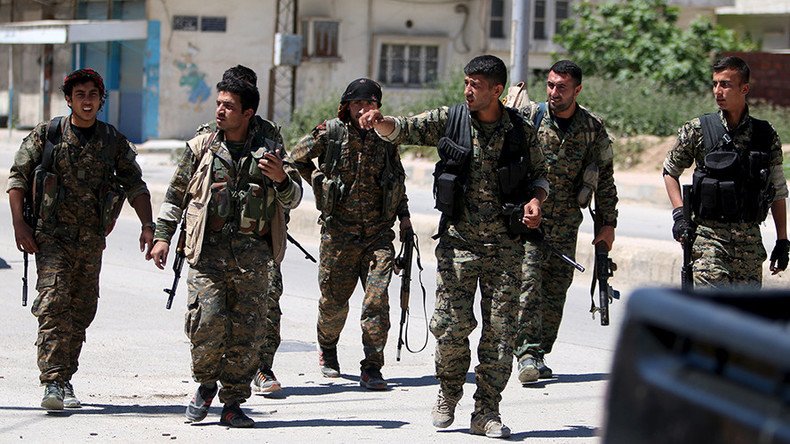What could go wrong? Obama mulls arming Syrian Kurds against ISIS

The US may send weapons to Kurdish militias in Syria, hoping to launch a major offensive against ISIS while Obama is in office, the New York Times said, citing government sources. The plan would put the US on collision course with both Turkey and Syrian “rebels.”
President Barack Obama “has told aides that he wants an offensive well under way before he leaves office that is aimed at routing the Islamic State [IS, formerly ISIS/ISIL] from Raqqa, the group’s de facto capital in northern Syria,” the Times reported Wednesday, citing five senior US officials who wished to remain anonymous.
Obama administration is weighing a military plan to directly arm Kurds in Syria fighting ISIS | #YPG#Rojavahttps://t.co/D2P66mLcKH
— Samira Ghaderi (@Samira_Ghaderi) September 21, 2016
Currently under review by US Central Command (CENTCOM), the plan calls for providing the Syrian Kurds with “small arms and ammunition, and some other supplies” but “no heavy weapons such as antitank or antiaircraft weapons,” the paper said.
The US military has already made 350 airdrops to the “Syrian Democratic Forces,” made up overwhelmingly of Kurdish militias in northeastern Syria but including several local Arab militias to deflect criticism from Turkey. Ankara, a key US ally in the region, regards the Syrian Kurds as terrorists allied with Kurdish insurgents inside Turkey.
READ MORE: Syrian Army & US-backed Arab and Kurdish fighters squeeze ISIS
Several hundred US Special Forces operatives were sent into Syria earlier this year, to “advise and assist” the SDF in advancing on the IS capital. After probing the terror group’s defense lines in May, however, the Kurdish-dominated force turned west and crossed the Euphrates, attacking the IS-controlled city of Manbij in the Aleppo province. A Syrian Army push against Raqqa was defeated at Tabqa, and the government forces were thrown back on Palmyra.
Alarmed by Kurdish successes, Turkey sent an expeditionary force into Syria in early September, accompanied by some 1,500 “Free Syrian Army” militants. After initial gains along the border, the Turks and the rebels ran into stiff resistance from the Kurds as well as IS.
In August, as the Kurdish-led forces finalized the capture of Manbij, they clashed with pro-government militia forces in Hasakah. As Syrian jets that bombed the Kurdish positions, Washington threatened Damascus and scrambled jets to protect its Kurdish allies. While the situation did not escalate, the Syrian government stopped weapons deliveries to the Kurds as a result.
US to arm Syrian Kurds: "Commanders fear timetable to take Raqqa was set back when Turkey plunged into Syria with troops for the 1st time"
— Arnab Neil Sengupta (@arnabnsg) September 21, 2016
According to the New York Times, the Turkish intervention disrupted the US timetable for taking Raqqa, prompting the plan to arm the Kurds directly. Both the officials who leaked the plan’s existence to the paper and experts at Washington think-tanks agree that going through with the plan would complicate US relations with Turkey.
“If this happened, the fig leaf would disappear and it would be a very serious, contentious issue between the two countries,” Soner Cagaptay, a Turkey specialist on Turkey at the Washington Institute for Near East Policy, told the Times.
The Syrian ceasefire collapsed this week, following the US-led coalition airstrike on Syrian government forces in Deir ez-Zor on Saturday. The attack killed 80 Syrian soldiers and enabled IS forces besieging the enclave to advance. Washington has called the airstrike an accident, and brushed off Russian demands for an emergency session of the UN Security Council.
On Monday, Syrian rebels and the US accused Russia and the Syrian government of bombing a Red Crescent humanitarian aid convoy outside Aleppo. Neither Russian nor Syrian jets were anywhere near the convoy, the Russian Defense Ministry has confirmed. The UN later said that the air strikes on the convoy cannot be confirmed, but suspended all aid deliveries in Syria following the attack.












